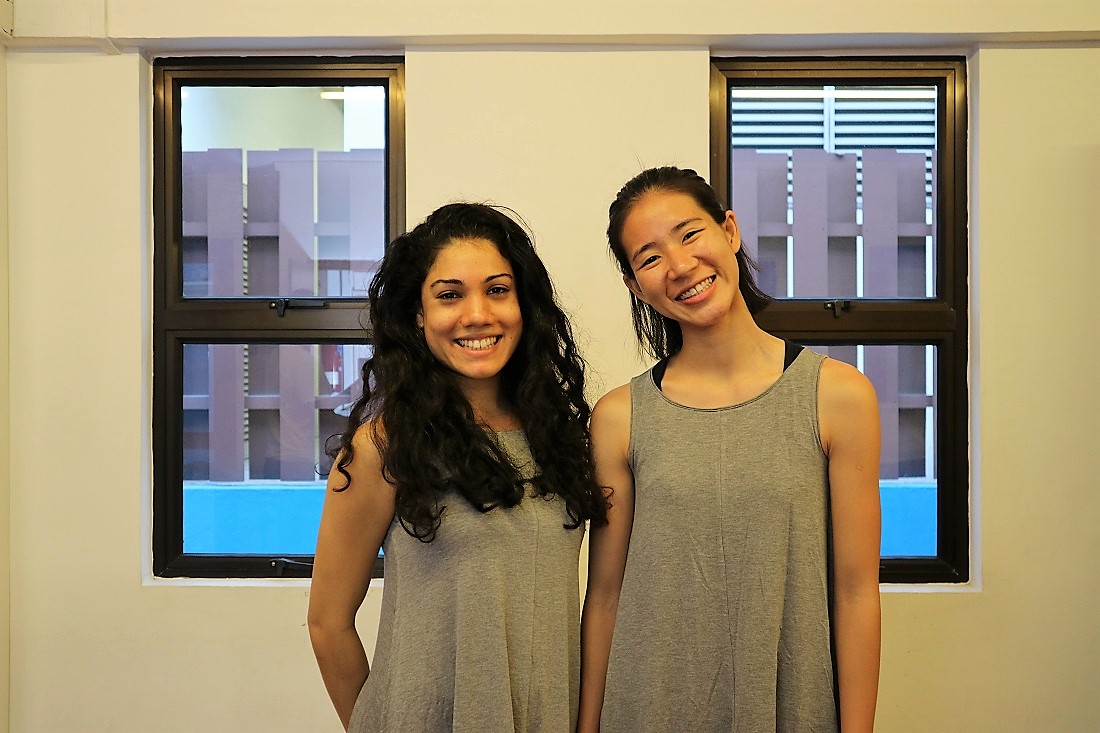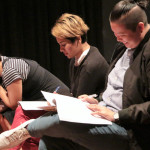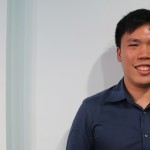It’s almost inevitable that when Sharda Harrison started her own theatre company, most of her work would examine the relationship between humans and animals. After all, the actress and arts educator is the daughter of Bernard Harrison, the former executive director of the Singapore Zoo. As a result, for the past three years under Pink Gajah Theatre, she’s done everything from inhabiting the spirit of a slaughtered cow to playing a zookeeper seeking friendship from an orangutan as his marriage breaks down.
In the long run, Sharda doesn’t think that all of her company’s future works will feature animals. She toys with the idea that maybe, they’ll just be about humans. And so when she started planning for a year-long laboratory programme called Pink Gajah Magic Lab series, she hopes to test that out – though she couldn’t help the fact that the inspiration for the first piece still came from the animal kingdom.
Titled Thinking About Death, the work is a collaboration between the Pink Gajah team – which comprises Sharda, her multimedia artist brother, Sean, and sound artist Mei Yin Lim – and performer Deborah Carmen Hoon. It was originally a partnership with fashion and lifestyle brand Gnossem’s Unboring Woman platform, but when that fell through just a couple of weeks before the showcase, the Pink Gajah team soldiered on to find a new place to stage it. Since the gang have been rehearsing at Centre 42 for the past few months and the piece is supported by our Basement Workshop programme, they decided it’d make sense to hold the showcase at our blue house. We catch up with Sharda and Deborah to hear more about their lab experience.
Your piece is now called Thinking About Death, but your initial working title was Death Rituals – what inspired it?
Sharda: It’s a bit of everything, but it really started with ants. I was swimming in a pool in Bali one time, and there were all these ants that were drowning in the pool, so I started saving them by putting them on the ground. There was one particular ant that I put on the soil. Immediately, I saw this big ant pick the ant up and go inside the ant colony. I was like, “Oh my gosh! Are they carnivorous? Do ants actually eat each other?” I started to Google what happened to ants when they died, and then I learnt that when an ant is injured, or when it’s about to die, it gives off oleic acid. This signals to the other ants to stop their routines, pick it up, and bring it back to their ant colony so they can bury it within the walls. I thought, if every ant could be accounted for in such a way, what does that say about humanity? So I started thinking about all these things, and that’s how the idea of “Death Rituals” came about.
So how did that evolve into Thinking About Death? You mentioned on the Pink Gajah Theatre Facebook page recently that it’s also the title of a famous painting by Mexican painter Frida Kahlo.
S: So Frida Kahlo has been in my thoughts for almost a year now. There’s this idea that death, or loss, was always permanent in her life. She lost Diego, her husband, and almost lost her life because she was in a very tragic accident when she was 16, and it left her immobile for almost the rest of her life. So there’s this heavy sense of longing [we were exploring], which leads to a simple story about a woman who loses her husband in a plane crash. It just goes in and out of text and imagery, and a woman going through the five stages of grief. And this is where we’re at with Thinking About Death right now.
Sharda, why did you decide to work with Deborah on the first piece for Pink Gajah’s Magic Lab series?
S: I knew the first laboratory was just going to be the Pink Gajah core team – with me being the performer, my brother Sean doing the multimedia, and Mei Yin doing the sound – but I wanted to challenge the way we create work. I also didn’t want to be the only performer; I wanted to bounce off someone. Deborah and I met at a contact improvisation jam years ago. She was studying overseas, so I would see her once every few years, but finally we met at a show and I asked her, “What do you think about this ant story?” And she said, “Yeah, I wanna do it! I really want to create work. I don’t mind failing at it, I don’t mind it being lab, I don’t mind it being messy.” And I was cool with it.
Deborah, what drew you to the project?
Deborah: Well, when I heard about the ants, I was really interested. Who really, really bothers about looking at them, or even knowing about that? But it was really interesting. I studied physical theatre in the UK, and we did a lot of things in that three-year course, but the first two years was really about devising stuff. So that experience for me was the big thing – there’s something about seeing these works, as they could have been total shit, or they could be brilliant. I really wanted to continue doing that. I want to still do things from scratch, without being told exactly what to do.
You’ve been rehearsing at Centre 42 for a few months now. What’s a typical session here like?
D: Well everyday is different. Scary and different. For both of us, more often than not, we would look at the text, and Sharda would tell me which part of the script that came from, and we would try to choreograph it with the text. We would see what works, and if it was too much we’d take it down a notch. I mean, yesterday we spent nearly three hours on one scene.
Death is, of course, a huge part of the work. What does death mean to you?
D: Honestly, I avoid it a lot. I don’t want to think about it. Obviously, I do think about it, but I always ask myself, “what for?” It’s going to slow me down from actually living. Living itself is so complicated, so why do I need to add on another question that slows down my living? But if death actually comes to someone I really love – touch wood – I don’t know how I would deal with it.
S: I’ve always talked about death. I’m, like, so cool about dying! When I was 23, I was dressed as a cat mascot every day for a year for kindergartens. There was one particular day when I was setting up the stage, putting on this cat mascot outfit, and then I had this existential moment. It was raining, I was at a Catholic school, and there was a woman playing the piano. It was all very weird and serene, and I remember sitting there, as a cat, thinking to myself that I’m not afraid of dying anymore. I went backstage, and I remember shouting it out to everybody. Like, “everybody, I’m going to die and I’m okay with it!”
What are you expecting from this upcoming showcase?
S: At first, I was a bit iffy about charging people $15. It was supposed to be part of the Gnossem deal, but now we need the money to cover rent. But since this is paid, the audience gets free drinks and things like that. But I also want people to experience the work at a very raw stage. Of course, we’re working very hard to make the work presentable. It’s not just an evening where you just watch it and go, “ugh, rawness!”
D: This is my first time being in a lab showcase. It’s also my first time working with a company. But what I expect from [the audience], I think, is for them to be in the journey with us. You know, have snacks and all, just watch and see what you get from it. If you don’t understand it, it’s fine. I’m not expecting too much actually.
Sharda, Thinking About Death is the first of three works in the Magic Lab series. Any ideas about the other two yet?
S: The second lab is still hanging, but I want to work with two photographers – Caleb Ming and Ryan Peters – and another man who works in the corporate world who’s written a script for me anyway. I’m very interested in working with these people because they’re very talented in their craft. I’m hoping to have that in either May or June next year. Then the third lab is a series of monologues. My mother is one of them – she’s a 66-year-old woman and it’s also about her life. And then there’s a boy called Ruzaini, who approached me about wanting to talk about the environment and other things. But then we realised that he just wants to talk about what it means being a Muslim homosexual in this day and age. I might also have [actor] Ghafir Akbar entering the sphere, who wants to talk about Syria. In that lab, we’re going to renegotiate what a monologue really is. And then after that, maybe I’ll pack up and go to London for a while… and then I’ll come back!
Interview by Gwen Pew & Daniel Teo on 6 December 2016
Pink Gajah Theatre’s Magic Lab Series #1 showcase, Thinking About Death, is taking place at Centre 42 from 15 to 17 December. For more details, click here.






